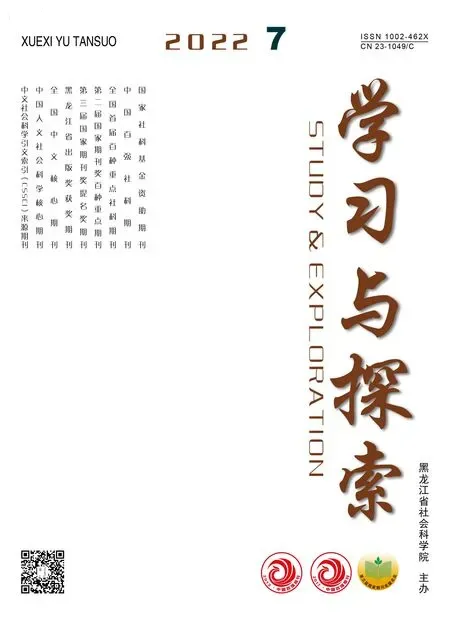ABSTRACTS
Formation,CharacteristicsandSignificanceofChinese-styleDigitalCivilization——BasedonthePerspectiveofHistoricalMaterialism
LIU Zhuo-hong1,2, LIU Yi2
(1.SchoolofMarxism,GuangxiNormalUniversity,GuilinGuangxi541004,China; 2.SchoolofMarxism,SouthChinaNormalUniversity,Guangzhou510631,China)
Abstract:From the perspective of historical materialism, the change of production mode, the outbreak of a new round of technological revolution and the realistic needs of the digital age constitute the driving force for the formation of digital civilization. Civilization is the synonym of progress. The development of digital civilization presents the progress and development of modern civilization in the digital age. Digital capital has a duality to civilization: the Western digital civilization developed under the capitalist system can’t solve a series of problems such as “digital capitalism” and “digital hegemony” caused by the inherent contradictions of digital capital itself; based on the restrictive effect of socialism with Chinese characteristics on capital and the adherence to the vision of people-centered development, the Chinese-style digital civilization highlights the distinctive characteristics of inclusiveness and sharing, openness and co-governance and all humanity of digital civilization. The construction of Chinese-style digital civilization has great theoretical, practical and world significance, which greatly promotes the development of human civilization in the 21st century.
Keywords:Digital Civilization; Chinese-style Digital Civilization; Digital Age; Digital Technology; Historical Materialism
JacquesRancière’sLeft-wingLiteraryTheoryandMaoZedong’sThoughtonLiteratureandArtCenteredonTalksattheYan’anConferenceonLiteratureandArt
HAN Zhen-jiang
(SchoolofHumanities,ShanghaiJiaoTongUniversity,Shanghai200240,China)
Abstract:There are certain relations and differences between contemporary French aesthetician Jacques Rancière’s left-wing literary theory and Mao Zedong’s thought on literature and art. Before and after May 1968, Rancière was influenced by Mao Zedong’s philosophy and literary thought. He believed that there is no need for the mass to have a high degree of political consciousness as Althusser-style intellectual teachers, workers and students. They can also have aesthetic perception and appreciation of literature and art. In this context, Rancière’s notions of “disagreement politics” and “part of those that have no part” are both similarly linked to and structurally different from Mao’s concept of politics of liberation and “the people”. Moreover, Rancière’s literature politics has some reference to Mao’s “the people’s art and literature”.
Keywords:Jacques Rancière;TalksattheYan’anConferenceonLiteratureandArt; Maoism; Mass Line

